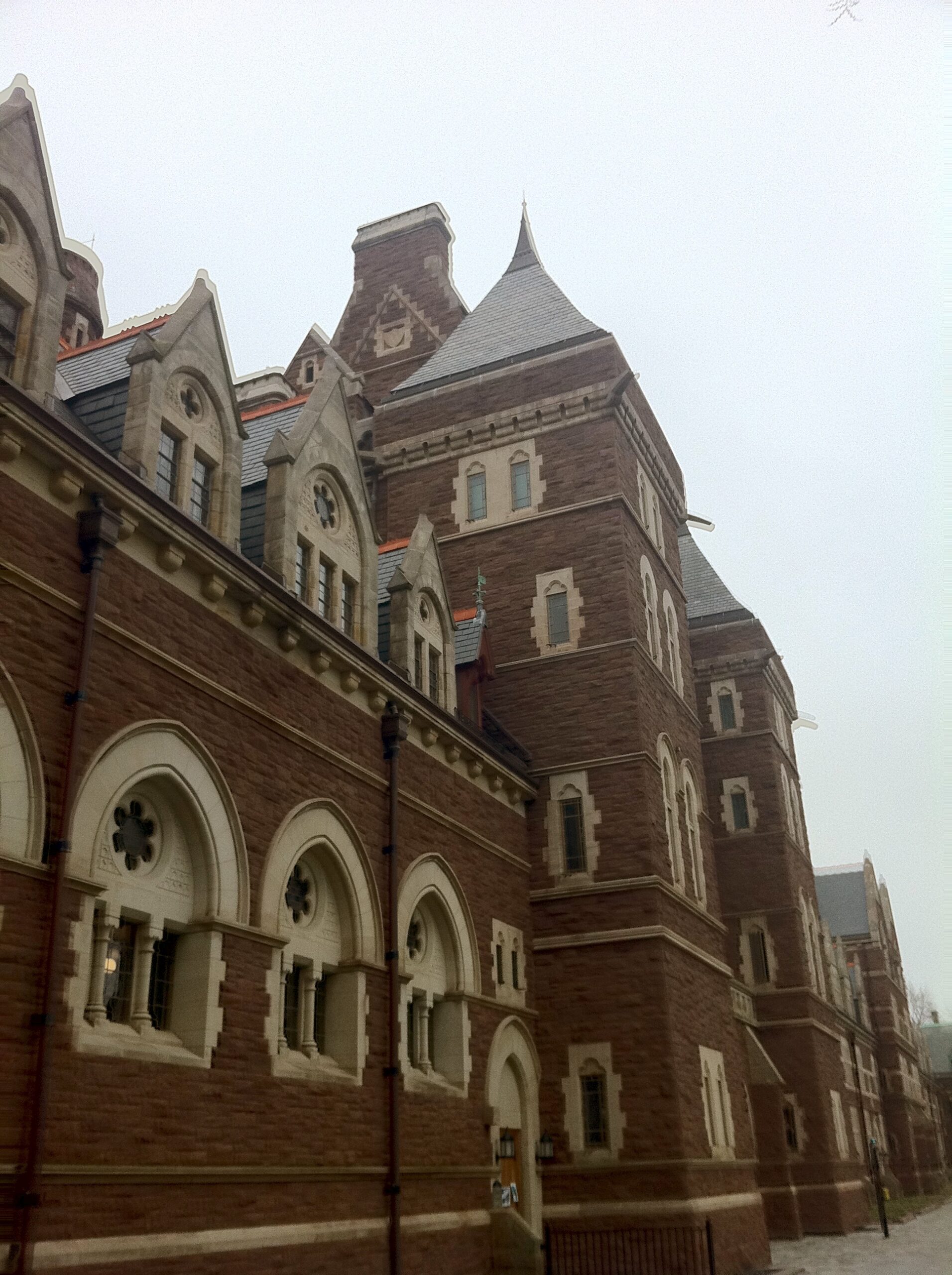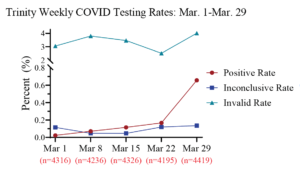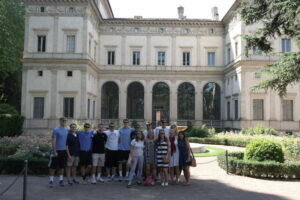Jack P. Carroll ’24
News Editor
President of the College Joanne Berger-Sweeney announced Trinity’s plans to rename Wheaton and Seabury Halls prior to the beginning of its bicentennial year in 2023 in an email addressed to members of the Trinity community on Wednesday, Mar. 31. In addition, Berger-Sweeney reported that the College will be “examining the histories of more than 30 buildings on our campus that are named for individuals and considering whether any changes are warranted.”
In the email, Berger-Sweeney outlined plans to relaunch the Committee on Named Facilities and Commemoratives in July 2021. The committee–which was created by the Board of Trustees in 2013–will be composed of administrators, faculty, and staff from a broad range of offices and organizations. Also, the college archivist will serve as an adviser to the committee which will be required to submit a report on its judgement of “the suitability of opportunities and requests” to the President and the Board of Trustees. Furthermore, Berger-Sweeny noted that the director of donor relations “is no longer included in the committee membership, as the focus on naming, renaming, or commemoration at Trinity should be based on our values and shared history, not solely the size of a donation.”
As previously reported in the Tripod, Berger-Sweeney first announced Trinity’s intentions to rename Wheaton and Seabury Halls in a message to members of the Trinity community on July 1, 2020. These plans were a part of the College’s response to a statement of list and demands issued by the Umoja coalition; though the President’s message clarified that Trinity’s plans were only “a list of initial commitments of actions that [the administration] can take as soon as practicable.”
In their list of demands to the administration and the Board of Trustees, the Umoja coalition proposed the renaming of Nathaniel Wheaton and Samuel Seabury Halls, and cited to documents which purported to show connections to slavery.
Berger-Sweeney noted in her email this week that, regarding Seabury, a “citation was incorrect” and the “treatise and sermons were misattributed.” Berger-Sweeney added that she has “apologized to members of his family, some of whom are are still members of our community.” In an emailed response to the Tripod, Rojas clarified that no changes will be made to Seabury Hall at this time. In addition, Rojas indicated that the Board of Trustees is still reviewing plans to rename the Wheaton dormitory, stating that “we will share the results of those discussions after they have occurred and, at a future time, the schedule for renaming, if that is to occur.” When asked about the available opportunities for members of the community to provide input on the renaming plans, Rojas stated that the committee will likely “review verifiable information and research from the broader community.”
The coalition earlier this summer provided a list of alternative figures who “have made strides for the college and in other ways that do not tie into the dehumanization of our fellow human beings” for the College to consider during the renaming process.
The recommended figures include former Dean of Multicultural Affairs Karla-Spurlock Evans, Professor of Philosophy Maurice Wade, Professor of Religious Studies and Interstudies, (Emeritus) Leslie G. Desmangles, and James Williams or “Professor Jim.”
In the spring of 2019, the alleged proslavery beliefs of Wheaton and Seabury were detailed in Trinity and Slavery–a project developed by students enrolled in American Studies 406: The History and Memory of Slavery at Trinity. Student research found that in 1850, the second president of Trinity College, Reverend Nathaniel Wheaton, delivered a sermon “laced with proslavery rhetoric, focusing on religion as a defense of slavery” at Christ Church in Hartford, Connecticut. Also, the project alleged that Samuel Seabury, the first Episcopal Bishop of Connecticut, wrote A Westchester Farmer (1774), in which he “supported and justified the enslavement of black men and women in order to allow the colonies to continue to be connected to England, who relied heavily on the Transatlantic slave trade.” The student research on Seabury and the content of the phamplet have since been contested, and a message on the Trinity and Slavery website indicates that “researchers have found some errors of fact in what is presented here.”
In March, Trustee Michael Gary ‘86, told the Tripod that the Board of Trustees’ new Committee on Diversity, Equity, and Inclusion did not discuss the proposed renaming of various buildings on campus. When asked if the Trustees plan to implement any of the initiatives, Gary stated that “these recommendations are operational in nature and therefore the responsibility of the administration to act, review, and implement.”








+ There are no comments
Add yours